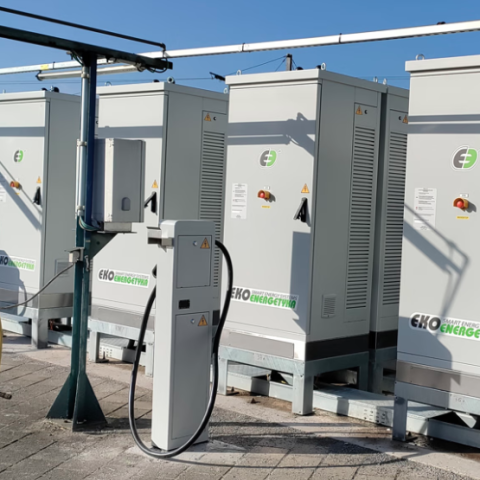De Lijn, a framework agreement for up to 1,600 charging stations from SPIE-Ekoenergetyka and ABB
De Lijn‘s board of directors has given ‘green light’ for a new order for charging infrastructure for its depots. This consists in a framework agreement for up to 1,600 charging stations to be sourced from two suppliers, SPIE-Ekoenergetyka and ABB. The conversion of the depots plays a crucial role in the greening of De Lijn’s […]

De Lijn‘s board of directors has given ‘green light’ for a new order for charging infrastructure for its depots. This consists in a framework agreement for up to 1,600 charging stations to be sourced from two suppliers, SPIE-Ekoenergetyka and ABB.
The conversion of the depots plays a crucial role in the greening of De Lijn’s bus fleet. De Lijn will purchase some 320 to 490 charging points in the first phase, representing an investment of €15.3 million for 490 charging points.
De Lijn goes with SPIE-Ekoenergetyka and ABB
The framework agreement allows De Lijn to order a maximum of 1,600 charging points from two suppliers, SPIE-Ekoenergetyka and ABB, over a period of up to eight years. In a first partial order, De Lijn expects to order 320 to 490 charge points divided between the two suppliers.
For subsequent sub-orders, both parties will compete, De Lijn states. The allocation of the charging points will be tailored to the progress of the infrastructure works at the depots.
“The purchase of the charging infrastructure is a crucial step in this sustainable transition. We want completely emission-free driving in Flanders as soon as possible. Therefore, we continue to work on the full greening of the bus fleet and the conversion of the depots, including the necessary charging infrastructure,” said Flemish minister Lydia Peeters.
“With this framework agreement, we are taking an important next step in the electrification of our depots,” says director-general of De Lijn Ann Schoubs. “De Lijn has been purchasing exclusively electric buses since 2022.It goes without saying that these e-buses must be recharged daily.”
“We are pleased that after the successful pilot projects in Leuven and Antwerp, we can once again support De Lijn in its greening process,” says Guy Damen, sales manager e-mobility for the Belux at ABB. “We have meanwhile gained a lot of additional experience in Western Europe that we are happy to make available to De Lijn and its passengers.”
“SPIE and Ekoenergetyka join forces to guarantee high-quality installations during the development period of the sites. At the same time, we ensure that the infrastructure is maintained smoothly,” says Geert Van Inthoudt, BU Manager Infrastructure Services at SPIE Belgium.







